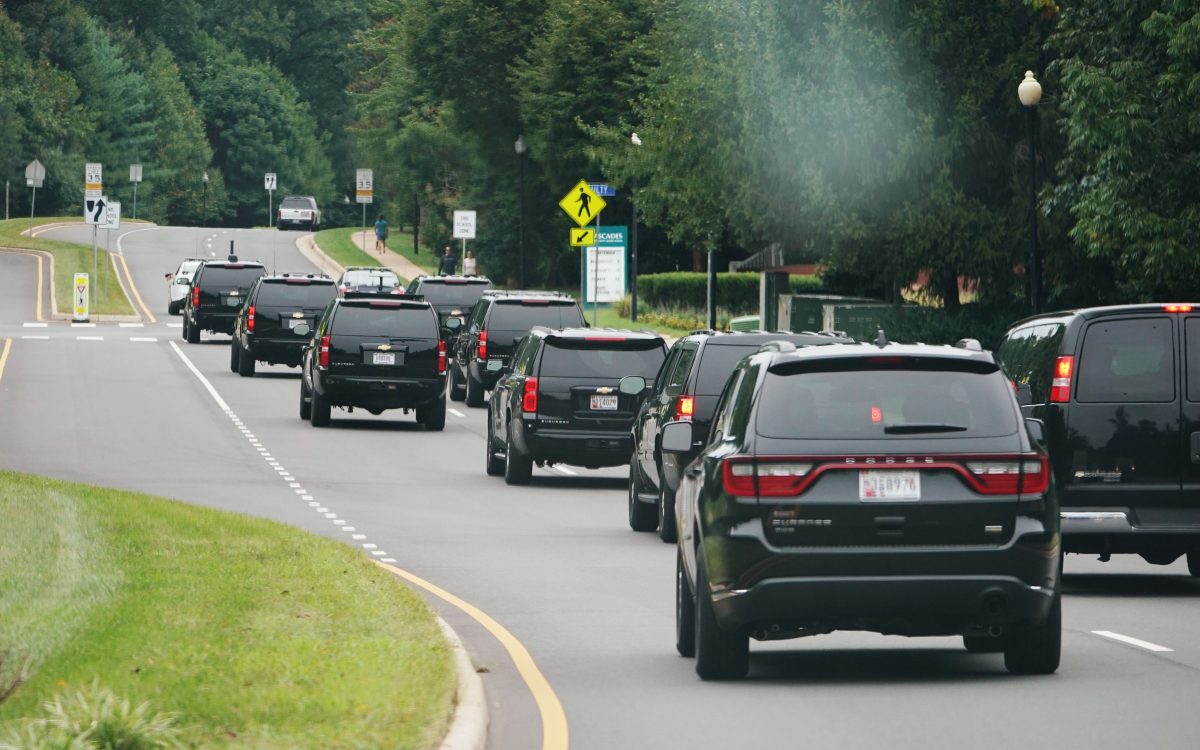The urban riots with images of buildings and cars set ablaze in 2020 proved how dangerous America’s city streets can be for anyone stuck in traffic during incidents of civil unrest.
With little warning, your vehicle could be up against an angry, fist-pounding mob bent on causing harm and destruction.
It’s an urban motorist’s worst nightmare, says James Jamila, North American manager for The Armored Group, an international armored vehicle manufacturer based in Shelby, North Carolina.
Jamila said the riots triggered by the death of George Floyd and the COVID-19 panic saw an unprecedented increase in people calling his company wanting to know more about armored vehicles.
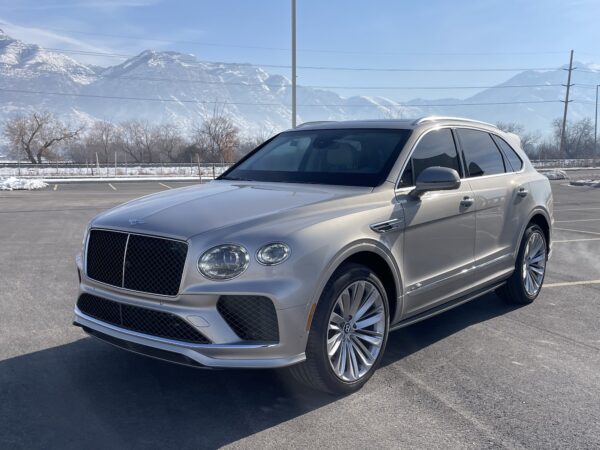
And the interest has yet to let up.
“It’s going to increase,” Jamila said. “It has been increasing steadily because every year, it’s more evident the risk is there. You have the home intrusion or smash-and-grab street incidents. You have the daily commuters in the downtown core of whatever major metropolitan area surrounded by weirdos—all sides.”
As automobile thefts and carjackings in major urban areas increase, more everyday people feel the need to “armor up” because armored vehicles aren’t for the rich and mighty anymore, Jamila said.
They’re for anyone needing extra protection in a society becoming less civil.
“It’s a full spectrum—from employed, retired, to business owners. They range from blue collar to white collar, to small, medium, and large business owners,” Jamila said.
“Our business is fairly consistent. It would be the inquiries that would have a sharp increase. That first quarter of the pandemic saw all frenzies at the retail store spaces that further exacerbated with the [Black Lives Matter] protests and riots.”
Unimaginable Scenario
Jamila painted a grim picture of the average urban commuter trapped in traffic congestion.
“You’re under an overpass. You’ve got addicts and homeless all around. So that’s the major metro demographic. It’s willful blindness not to recognize that,” Jamila said.
According to a January 2023 report by the nonpartisan Council On Criminal Justice, motor vehicle thefts, including carjackings, rose 59 percent across 30 major U.S. cities between 2019 and 2022 during the pandemic.
“In short, the rise in motor vehicle theft that began early in the pandemic showed no sign of letting up more than two years later,” the report concluded.
The report found 37,560 more automobile thefts in 2022 than there were in 2021.
In Denver, motor vehicle thefts skyrocketed 179 percent during the same three-year period—136 percent in Chicago, 113 percent in Minneapolis, 73 percent in Seattle, 71 percent in Austin, 64 percent in Los Angeles, and 51 percent in San Francisco.
The alarming increase runs counter to findings by the Bureau of Justice Statistics showing a 78-percent decline in nonfatal carjackings between 1995 and 2021 nationwide.
Jamila said the large metropolitan areas are where he sees the most family consumer interest in armored vehicles.
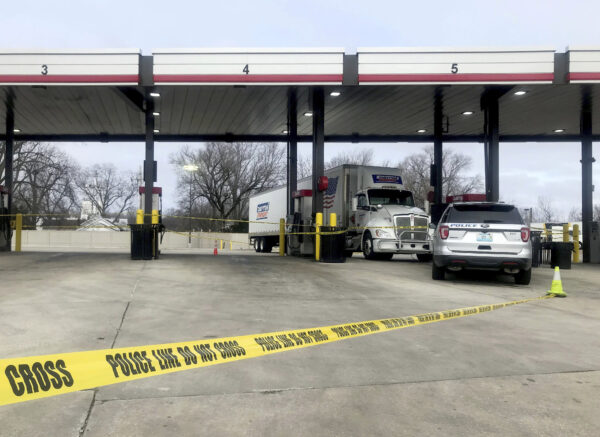
“Essentially, any major metro with an international airport is at the highest perceived threat level and risk, and it trickles down from there,” Jamila told The Epoch Times.
Utah-based armored vehicle producer Armor Max has sold over 10,000 vehicles during the company’s 30 years throughout North America and globally. The company boasts sales to 47 heads of state.
Chief Executive Officer Mark Burton said interest in armored vehicles continues to grow as society becomes more volatile and unpredictable.
“The market in the U.S. until recently has not been that strong. But it’s almost every day we’re getting one [order request] in the United States,” Burton said.
“We sold a vehicle yesterday—a van—to a gentleman out of California. But his business is in Arizona now. He [also] bought a big passenger van, and he’s had it for about three weeks.”
Built for Protection
The client paid half the vehicle’s cost upfront to expedite the order.
“He thinks that if things go bad, he can put his family there and escape a dangerous situation. It’s not necessarily a daily driver [vehicle],” Burton said.
Some clients will purchase an armored vehicle for daily commutes—Toyota Camrys, Honda Accords, for example.
“Most of the cars we’re doing are high-powered handgun protection,” Burton said. “There’s uncertainty out there so they feel the need. They never know when it could happen—and it is happening, especially to individuals in the larger cities.”
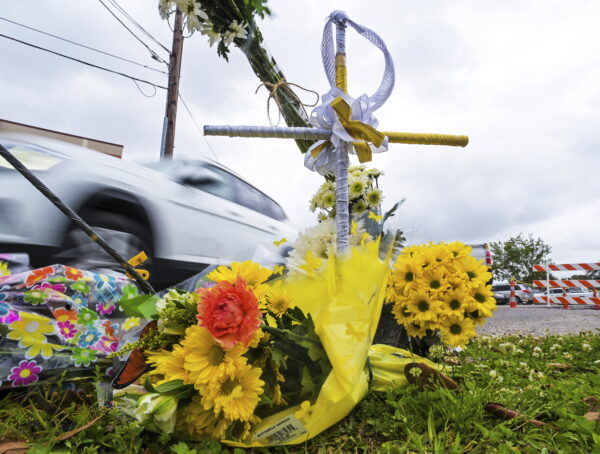
Burton agrees the trend started with the pandemic in 2020. But now it’s “off the charts—that feeling of uncertainty.”
“It used to be the feeling it would never happen to us in our country. You’re seeing more events, whether in Los Angeles, Chicago, or New York—they’re just seeing more events. They want to protect their family. They want peace of mind,” Burton told The Epoch Times.
“Now, they’re seeing [third-world level crime] does happen in America. It’s one of those situations where they don’t think it will improve. The trend we see is it doesn’t look like it. It’s like Pandora’s Box.”
Founded in 1992, The Armor Group’s clients include federal government agencies, foreign heads of state, the United Nations, commercial users, and private households.
In 2017, the company delivered more than 12 communications SUVs for the presidential motorcade of Donald Trump.
Jamila said his company works with armored vehicles in three product segments: cash and transit, passenger vehicles, and tactical law enforcement.
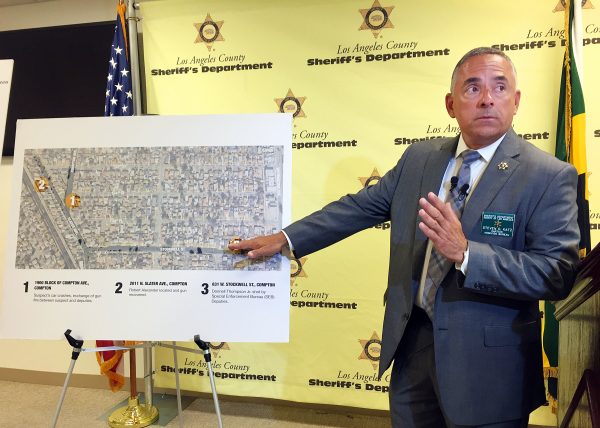
The passenger vehicle market is the company’s “nitty gritty” experiencing significant growth and interest.
Jamila said there are five “top motivators” for purchasing or equipping an armored vehicle. They include the daily commuter facing heavy traffic congestion where they’re most vulnerable to a carjacking attempt.
Another is an incident involving road rage or a deliberate attack on the motorist using a handgun.
Other incidents might involve a long-barrel rifle fired at a distance, a crowd swarming around a vehicle, or a “state of lawlessness” or national emergency.
Jamila said an unarmored vehicle has “soft skin,” meaning it has little protection against violent attacks.
In contrast, a fully equipped armored vehicle would include 360-degree safety for the entire passenger compartment with ballistic glass, steel, and transparent armor.
While “bulletproof” is a misnomer, the ballistic glass is strong enough against an AK-47 round, Jamila said.
“Our vehicles are ballistic resistant,” providing a “mitigation of risk in transit whatever the unforeseen risk may be,” as the goal is to escape quickly. “It’s a purely defensive posture to endure and get you out,” he said.
Burton said Armor Max’s “Gold Package” with ballistic glass, doors, or rear hatch protection is popular among customers right now.
“Economics plays a part in it—people want to protect their families. They recognize now because of work, they may find themselves in a shady area,” Burton said. “In Chicago, for example—it’s a beautiful city, but it’s a tragedy what’s happened there” with random street violence and flash mobs.
“This gentleman yesterday spent $120,000 on an armory package without the cost of the vehicle. He’s an individual who sold his business.
“When everything gets bad, he [prioritizes putting] his family in his car and going elsewhere. His sentiment is he doesn’t know if he can rely on the [social] structure that existed a couple of years ago.”
The Armor Max CEO said his business in the United States has increased eightfold during the past three years, which is likely to continue.
And while it’s a sign of market strength, it indicates crime is approaching levels found in Third World countries.
“Somebody asked me that question last week. I would have to say, as far as street violence, we’re about like South Africa in some areas,” Burton said.
“It’s a sad statement on our nation. I hope there is some solution, but the trend of the past three years is continually worsening, and people’s sentiment is the need to feel that peace of mind.”










































